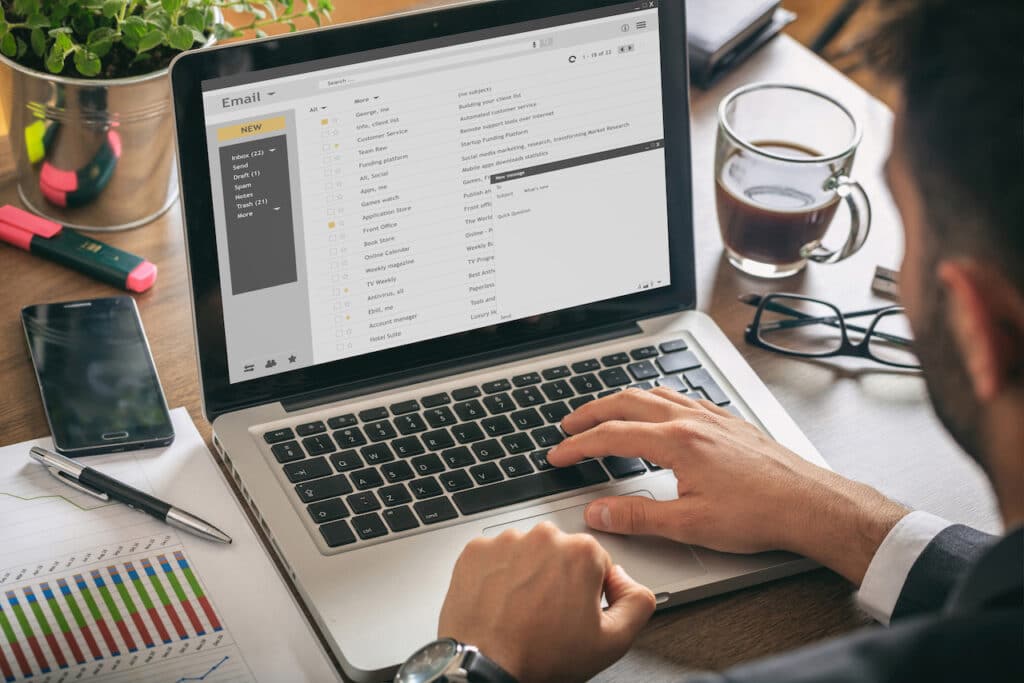
In July of 2023, Chinese intelligence was able to gain access to the emails of 25 different organizations, including U.S. government agencies. They attacked individual email accounts to avoid detection and had access to emails for over a month before getting caught.
One cyberattack and gaining access to your emails could be all it takes for your company to lose its reputation, making email encryption and security more important than ever. Learn more about how you can protect your emails.
What is the Significance of Safeguarding Your Emails?
If you’re running a business, email encryption should be at the top of your cybersecurity checklist. Emails often contain confidential data such as financial records, customer data, or intellectual property.
Without encryption, this sensitive information can be easily intercepted and read by third parties. You can run into problems like these:
- Legal Consequences: Many industries have regulations that require them to protect certain types of information from unauthorized access. Failure to comply with these regulations could result in hefty fines or lawsuits.
- Reputation Damage: If customer data is accessed and stolen, it can severely damage your company’s reputation. Customers will lose trust in a company that cannot protect their information.
- Financial Loss: A data breach can lead to significant financial losses through legal fees, lost business opportunities, and damage control measures. Some companies may never recover from such a loss.
The Basics of Email Encryption
Encryption exists to protect the confidentiality and integrity of emails while in transit. Think of it like a lock on a safe: even if someone else has access to your safe, there’s no way to get the information inside without the key.
So, how does it work? Essentially, encryption scrambles your emails so that only the intended recipient can read them. This is accomplished by using a mathematical algorithm to convert plain text into an unreadable format called ciphertext.
The intended recipient then uses a decryption key installed on their computer to “unlock” the ciphertext so it switches back to plain text—essentially unlocking the email.
Types of Encryption
There are several types of email encryption, but the two most common methods are symmetric and asymmetric encryption.
Symmetric Encryption
This type uses a single key that both the sender and recipient share to encrypt and decrypt messages. This is an efficient method, but it requires the secure exchange of keys beforehand.
Asymmetric Encryption
This method, on the other hand, uses a public and private key pair. The public key is used to encrypt messages, while the private key is used to decrypt them. The keys are generated using mathematical algorithms and do not need to be shared beforehand. This method is more secure, but it can be slower and requires additional computing resources.
PGP (Pretty Good Privacy) and S/MIME (Secure/Multipurpose Internet Mail Extensions) are common implementations of asymmetric encryption in email.
Email Best Practices
While email encryption is an important step in securing your company’s data, it should not be the only one. Here are some best practices to follow to further safeguard your emails:
- Train Your Employees: Educate your staff on the importance of email security and how to identify potential phishing attempts.
- Use Strong Passwords: Make sure all accounts use complex passwords that are difficult to guess.
- Update Software Regularly: Ensure that all software used for email communication is updated regularly with the latest security patches.
- Use Additional Security Measures: Consider using multi-factor authentication or advanced threat protection tools to further secure your emails.
Using encryption and following these steps will ensure your data is safe and protected. Don’t wait until it’s too late—start implementing security measures for your business today.
How Does Encryption Tie Into Compliance?
Many industries, such as healthcare and finance, have strict regulations in place to protect sensitive information. One of the key requirements for compliance with these regulations is using appropriate methods to protect electronically protected health information (ePHI).
Similarly, the Gramm-Leach-Bliley Act (GLBA) requires financial institutions to protect customer information, including emails. One way to do this is by using encryption. By implementing email encryption, you are not only securing your business and its data but also ensuring compliance with industry regulations.
Unity IT Will Keep Your Data Safe
At Unity IT, we understand the importance of email encryption and other cybersecurity measures in protecting your business. We’ll help you leverage the right technology for your business and guide you through the setup and maintenance process.
Schedule a free consultation with us today.

